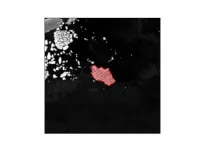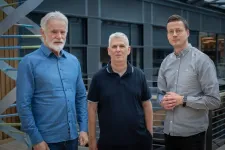(Press-News.org) Peer-reviewed/ review, analysis and opinion
The Lancet: Studying medicine, Nazism, and the Holocaust crucial to strengthening medical education and ethics today
Most comprehensive report to date on medical atrocities under Nazism and during the Holocaust – and their implications for today – details the central role health professionals played in formulating and carrying out the antisemitic, racist, and inhumane policies and practices during the Nazi regime.
The Commission challenges long-held misconceptions about medicine in the Nazi era, including the claim that medical crimes were carried out by only a few extremist doctors or that perpetrators acted under coercion.
The report emphasises the critical role institutions play in ensuring the study of medicine, Nazism, and the Holocaust is part of required curricula for all health professionals. Through incorporating lessons from that historical era, the medical community can become better equipped and resilient in the face of ethical pressures, fostering a deeper understanding of human rights as integral to medical practice and research.
Detection and prevention of crimes against humanity and genocide, as well as care for the victims, should be integrated into the medical ethos, in order to foster history-informed, morally courageous health professionals who speak up when necessary.
Authors call on universities, medical schools, research institutes, and other professional organisations to consider the evidence and recommendations in the report as they strive to strengthen medical education and ethics today.
Efforts to strengthen contemporary health professionals’ education and medical ethics should be informed by a robust understanding of medicine’s role within the Nazi regime, according to a new report from the Lancet Commission on medicine, Nazism, and the Holocaust: historical evidence, implications for today, teaching for tomorrow. An education in how and why such atrocities were enabled can further empower generations of medical and health professionals to face moral and ethical medical dilemmas and their own biases, stand up to power, and protect vulnerable populations and patients.
The Commission—written by a diverse and international group of 20 scholars, physicians, and researchers with expertise in history, medical education, and bioethics—is the first Lancet Commission focused on the history of medicine. Through examples of discriminatory and inhumane medical policies and practices under the Nazi regime, the authors aim to inform approaches to contemporary issues in medicine and underscore the importance of centring human rights and dignity in medical professionals’ conduct—this includes a willingness to stand up to wrongdoing whenever and wherever necessary.
“Nazi medical atrocities represent some of the most extreme and best-documented examples of medical involvement in human rights violations in history. While it is tempting to view the perpetrators as incomprehensible monsters, the evidence put forward by the Commission demonstrates how many health professionals were capable of committing ethical transgressions and even crimes against their patients under certain conditions and pressures. Health professionals—who often care for people at their most vulnerable—have a unique and important duty to develop and preserve a strong moral agency. By learning about medicine’s role and health professionals’ behaviour under Nazism, they can further develop their own moral reasoning and stand up to abuses of power in the name of individual patient rights and the dignity of all human beings, regardless of race, ethnicity, religion, and other individual characteristics,” said Commission Co-Chair Dr Sabine Hildebrandt of Boston Children’s Hospital and Harvard Medical School (USA). [1]
The core values of ethics and healthcare are fragile and must be protected
The Nazi regime is not the only instance in history in which members of the medical community were involved in crimes against humanity. However, it is one of the most extreme, well-organised, and extensively documented examples of medicine’s active participation in human rights violations—including antisemitism, racism, discrimination, mass atrocities, and genocide. As such, important implications can be drawn for today’s health professionals’ moral agency, especially under economic, political, or other types of pressure.
“A wide range of debates we see in medicine now—from who should receive care during a catastrophic event, to end-of-life care and new developments in genetics, to name just a few —indicate how medicine and science are linked with politics, personal beliefs, and socio-economic factors. Medical professionals and bio-scientific researchers have to be aware of these influences and their manifold implications for patients and study participants,” said Commission Co-Chair Prof Herwig Czech, Medical University of Vienna (Austria). [1]
During the Nazi era, the medical community helped create, justify, and implement policies according to the Nazi doctrine and changed their understanding of medical ethics accordingly. Records indicate that physicians joined the Nazi Party and its affiliated organisations in higher proportions than any other profession [2], and Germany’s medical and research institutions played instrumental roles in the regime. Throughout the Commission’s report are examples of how the Nazi “ethical code” was weaponised as a tool to value, prioritise, and advance people of German “Aryan” descent above all others in medical care and research, as well as rationalise eugenics, forced sterilisation, the “euthanasia” patient murder program, and brutal human experiments. Methods first developed and applied in the T4 patient murder program of 1939-41, during which 70,000 institutionalised patients were killed by gas, were later applied to the extermination camps in Poland, where victims were murdered upon arrival in gas chambers disguised as showers [3].
“It is often surprising how limited the knowledge about Nazi medical crimes in the medical community is today, perhaps apart from a vague notion of Josef Mengele’s experiments in Auschwitz. Our report aims to change this. Although the examples we present are extreme, studying medicine under Nazism highlights the critical role of societal factors and of ethics in medical and scientific advancement. Today’s health professionals operate in systems and structures that do not benefit all patients equally. While there is no simple path ahead, knowledge of historical extremes can make us better prepared to work through ever-evolving ethical dilemmas in medicine,” added Prof Czech. [1]
In the aftermath of World War II, deliberations over medical ethics—including human rights-based medicine, health care, and voluntary consent in research—drew international attention. Starting in 1946, the Nuremberg Doctors’ Trial led to the first international principles for ethical research on humans, later to be known as the Nuremberg Code. This formed the basis of many subsequent declarations and was an important factor in the development of modern bioethics.
Taking accountability for the past is a responsibility for future generations of medical professionals
As the report details, contrary to common misconceptions, medicine in Nazi Germany was not “pseudoscience.” In fact, it worked on the basis of standards and practices of biomedical science developed in the late 19th and early 20th centuries. German scientists were part of broader international networks exploring and promoting eugenics and developing racist medical rationales.
In life and death, the bodies of Nazi victims were used for research and teaching, and specimens of their human remains were sometimes kept in scientific collections for decades after the war. The Pernkopf anatomy atlas (panel 13) is an example of how Nazi research has become part of the canon of medical knowledge. Re-drawings of the Pernkopf images—some deriving from the bodies of victims of the Nazi regime—have been copied in many publications and atlases, often without reference to the original. [4] Current understanding of aviation safety, hypothermia, and even the effects of tobacco and alcohol use on the body has also been informed by research in the Nazi era but, again, awareness of how the research was obtained is scarce. [5]
“Accountability for and recognition that crimes were committed in the name of medicine in the Nazi era and during the Holocaust remains woefully inadequate. Medical students, researchers, and practicing health professionals should know where—and from whom—the foundations of medical knowledge come from. Victims of Nazism are owed that; they have a right to be honoured and treated with dignity in life and death for coerced contributions to medicine as we know it today. The goal of our report is to provide additional resources and information for medical schools, research institutions, and medical associations worldwide to continue accountability efforts as part of their responsibility to past and future generations,” said Commission Co-Chair Prof. Shmuel Pinchas Reis, of the Center for Medical Education at Hadassah/Hebrew University Faculty of Medicine (Israel). [1,6]
Empowering students and medical professionals to be ethical agents of change
The Commission stresses that the pursuit of scientific knowledge and the delivery of medical and health care must occur within a framework that prioritises human rights. As such, the authors put forward recommendations to ensure that medical education focuses on developing history-informed moral agency and resilience among medical professionals. Key recommendations include:
Incorporate the study of medicine, Nazism, and the Holocaust in curricula for all medical students and health professionals, across the medical field and in continued medical education initiatives.
Encourage students and medical professionals to develop a history-informed professional identity, including being able to recognise their own potential biases or conflicts of interest, challenge hierarchies, and equip them with the tools necessary to overcome them.
Universities, psychiatric hospitals, and other medical institutions worldwide should actively identify and commemorate victims of Nazi medical crimes and initiate research to better understand their direct connections to human rights violations in the past. They should also look at their own past, identify and document patterns of medical abuse, and integrate this history in their curricula.
The report also tells the stories of Jewish and non-Jewish health professionals working and caring for their patients in extreme circumstances—such as in ghettos and concentration camps. Their personal testimony has become intrinsic to teaching and discussing the horrors of the Holocaust and other atrocities of the time. Recognising these people and their efforts to provide human rights-based care where possible is instructive to health professionals today and in the future; it stands in sharp contrast to the dehumanising practices of health professionals complicit with the Nazi regime and demonstrates that acts of moral courage are possible even in dire situations.
“Over the last few years, scientific research, medical, and health policies have been subject to great scrutiny. Our report sets out some of the most horrific distortions of medical practice and policies in history, and it is incumbent on all in the health and medical community to keep the memory of the events of the Nazi era from fading. We must study this history of the worst of humanity, to recognise and work against similar patterns in the present, with the goal of promoting the best. We must speak out against antisemitism, racism, and other forms of discrimination, uphold and advocate person-centred, human rights-based medicine, protect the vulnerable, serve the marginalised, and acknowledge the humanity and dignity of each and every patient,” said Dr Hildebrandt, in summarising the insights of the Commission’s work of the last three years. [1]
END
The Lancet: Studying medicine, Nazism, and the Holocaust crucial to strengthening medical education and ethics today
2023-11-09
ELSE PRESS RELEASES FROM THIS DATE:
New study examines long term effectiveness of live shingles vaccine
2023-11-09
The effectiveness of live zoster (shingles) vaccine is highest in the first year after vaccination and then wanes substantially. But it continues to provide some protection against shingles and its complications ten years after vaccination, even in patients with a weakened immune system, finds a study published by The BMJ.
Vaccine effectiveness is a measure of how well vaccines work to protect communities in the real world.
Herpes zoster, commonly known as shingles, is a painful rash caused by reactivation of the chickenpox virus. It’s much more common among people aged 60 and older and those with a weakened ...
Latest results from PHOEBE trial show patients with advanced HER2-positive breast cancer live longer on pyrotinib
2023-11-09
Lisbon, Portugal: Patients with HER2-positive breast cancer that has started to spread to other parts of the body survive for longer if they are treated with a new drug called pyrotinib, according to results from the longest follow-up of the PHOEBE randomised clinical trial in China.
Presenting the latest results at the Advanced Breast Cancer Seventh International Consensus Conference (ABC 7), Professor Xichun Hu, of Fudan University Cancer Hospital, Shanghai, China, said the researchers had been able to analyse data on overall survival from the trial up to March 15, ...
Barnacle bends shape to fend off warm-water sea snails on the move
2023-11-09
Some barnacles are ‘morphing’ to protect themselves from predatory warm-water sea snails, which are expanding into their territory due to climate change.
Research led by the University of Southampton and published in the Journal of Biogeography shows how temperate prey species are adapting to changing water temperatures, which carry the threat of warm-water predators encroaching into their territory.
As global sea-surface temperatures rise and the number of marine heatwaves increase under global heating, coastal marine communities are changing. Warm-water predators ...
AI can map giant icebergs from satellite images 10,000 times faster than humans
2023-11-09
AI can map giant icebergs from satellite images 10,000 times faster than humans
Scientists have trained an artificial intelligence (AI) system to accurately map - in one-hundredth of a second - the surface area and outline of giant icebergs captured on satellite images.
It is a major advance on existing automated systems which struggle to distinguish icebergs from other features in the image. Manual - or human - interpretation of the image is more ...
People who contribute least in crowdsourcing can do the most to improve a public good
2023-11-08
Whether talking about the office kitchen, hiking trails or ratings on Yelp, there are always people who put in effort to leave those spaces better. There are also those who contribute nothing to that public good.
New research using large-scale online experiments suggests that rewarding people to contribute to a virtual public good, such as a simulated online rating for a ferry system, increased the accuracy of the ratings and improved the overall quality of that resource.
The multidisciplinary team, including researchers from the University of California, Davis; Hunter College, College of New York; the Max Planck Institute for ...
1 in 25 carries a genotype that is associated with a shortened lifespan
2023-11-08
1 in 25 carries a genotype that is associated with a shortened lifespan
Scientists at deCODE genetics, a subsidiary of Amgen, have published a study on actionable genotypes detected in the Icelandic population and their association with lifespan. The results of this study are among the things that have motivated the government of Iceland to announce a nationwide effort in precision medicine. As the delivery of precision medicine to a population requires considerable amount of data on genomics, transcriptomics and proteomics of the population, Icelanders are currently exceptionally well suited for ...
Zen and the art of mitochondrial maintenance: The machinery of death makes a healthier life
2023-11-08
While we all aspire for a long lifespan, what is most coveted is a long period of vigor and health, or “healthspan,” that precedes the inevitable decline of advancing age. Researchers at UC Santa Barbara have discovered that instruments of death that cells use to commit suicide when things go wrong contribute to making a longer and healthier life by revitalizing the specialized cellular compartments called mitochondria.
Mitochondria generate the energy for all of our activities, from movement to thought. These power plants inside our cells descended ...
MPFI researcher awarded $1.2 Million from Chan Zuckerberg Initiative
2023-11-08
Dr. Vidhya Rangaraju has been named a recipient of the Chan Zuckerberg Initiative’s “Ben Barres Early Career Acceleration Award,” which will provide her lab with $1.2 million over four years to study dysfunctions of brain energy supply.
Dr. Rangaraju is a Research Group Leader at the Max Planck Florida Institute for Neuroscience (MPFI). With this award, her lab will investigate the causes of disrupted energy supply in neurons that lead to cognitive decline in amyotrophic lateral sclerosis (ALS). ...
With new grant, RPI works to shrink microchips, expand semiconductor workforce
2023-11-08
Transistors — the tiny on-off switches inside microchips — have gotten smaller and smaller over the years, increasing computing power and enabling smaller devices. During that time, the copper wires that connect these switches have likewise shrunk.
However, smaller, thinner wires create a big problem, said Daniel Gall, professor of materials science and engineering at Rensselaer Polytechnic Institute.
“The job of the wire is to conduct electrons — electricity. Imagine a wire as a crowded hallway that the electrons have to get through. The narrower the hallway, the more the electrons bump into things and scatter. We call that resistance,” Gall ...
Single gene controls Corn Belt weed's resistance to soil-applied herbicide
2023-11-08
URBANA, Ill. — Waterhemp, the aggressive weed threatening Corn Belt crop production, is throwing curveballs once again, according to researchers at the University of Illinois Urbana-Champaign. The weed has famously developed resistance to not one or two, but seven herbicide sites-of-action classes, nearly exhausting the chemical tools farmers can use to defend their livelihood.
In a new Weed Science study, U. of I. researchers show that a single major gene is responsible for waterhemp’s resistance to S-metolachlor ...




